This article was co-authored by Chloe Carmichael, PhD and by wikiHow staff writer, Danielle Blinka, MA, MPA. Chloe Carmichael, PhD is a Licensed Clinical Psychologist who runs a private practice in New York City. With over a decade of psychological consulting experience, Dr. Chloe specializes in relationship issues, stress management, self esteem, and career coaching. She has also instructed undergraduate courses at Long Island University and has served as adjunct faculty at the City University of New York. Dr. Chloe completed her PhD in Clinical Psychology at Long Island University in Brooklyn, New York and her clinical training at Lenox Hill Hospital and Kings County Hospital. She is accredited by the American Psychological Association and is the author of “Nervous Energy: Harness the Power of Your Anxiety” and “Dr. Chloe's 10 Commandments of Dating.”
There are 12 references cited in this article, which can be found at the bottom of the page.
This article has been viewed 23,896 times.
Dealing with depression is difficult and frustrating, but there is hope. Better days will eventually come along. In the meantime, you can motivate yourself to get through your day or work toward a goal. Getting motivated may not be easy, but you can do it. Making tiny changes in your day can help you start to build momentum and keep yourself motivated.
Steps
Giving Yourself a Quick Boost
-
1Focus on one thing at a time so you don't get overwhelmed. It's hard to get motivated if you're thinking about everything you need or want to get done. However, it only takes one tiny step to make progress, so give yourself permission to do just one thing at a time. When your mind wanders to other tasks, take a deep breath and shift your thoughts back to the task at hand.[1]
- For example, don't lay in bed listing the things you're supposed to do today. Instead, make getting out of the bed your only task. Next, make showering your priority. Then, you could get something to eat, etc.
-
2Use positive self-talk to help get yourself moving. Depression often comes with negative thoughts about yourself. When you catch yourself thinking poorly of yourself, acknowledge the thought. Then, challenge its accuracy. Follow this up with a positive thought that's kinder to yourself.[2]
- For example, you might catch yourself thinking, “I'm being so lazy today.” Notice the thought, then challenge it. You could replace that thought with, “I'm doing my best today, and that's enough.”
- As another example, you might think, "No one cares about me." When you catch the thought, stop and list the ways people you know have showed they care. Perhaps they call and check up on you, give you special gifts on your birthday, share funny memes with you, or listen to you when you're upset. Then, replace that thought with, "My family and friends show they love me, and I know they care about me."
Advertisement -
3Step outside for a quick mood boost. Being outdoors in nature releases mood-boosting chemicals in your body. Additionally, spending time in natural light can enhance the good feelings even more. Simply go outside and sit for 5-10 minutes to feel the benefits. If you can, take a short walk outdoors.[3]
- For example, you might make a habit of sitting outside with a cup of coffee every morning. This small act can help you feel more motivated for your day.
- If you feel a little bit more energetic, take a walk around the block and enjoy the sights and sounds of the outdoors, in an environment with some natural elements if possible, such as a park.
- If you're feeling really down, don't worry about getting dressed or washing up. Just sit right outside your door.
-
4Turn on an energetic song to help you feel more upbeat. Music can have a big impact on your mood, and it can help you better cope with your depression. Listen to your favorite songs or make a great playlist. Turn on your mood boosting songs whenever you need a quick boost.[4]
- The best music for you will depend on your preferences. However, look for songs that have a high tempo and a positive message.
- For example, you might turn on a dance song like Taio Cruz's "Dynamite," Bruno Mars' "Uptown Funk," or Beyonce's "Single Ladies." If you like pop music, you might turn on Katy Perry's "Firework" or Lady Gaga's "Just Dance." If you prefer country music, you could turn on Shania Twain's "Man! I Feel Like a Woman!" or Gretchen Wilson's "Here for the Party."
-
5Treat yourself as a reward for making an effort. Creating a rewards system will help you stay motivated to keep going. Use easy treats that you enjoy, like a nice coffee, your favorite candy, a new book, an episode of your favorite TV show, or something similar.
- Attach your rewards to efforts, not the results. For example, stop at your favorite coffee shop as a reward for going to work. You might reward yourself for finishing your workday by getting takeout so you don't have to cook.
-
6Set reminder alarms for important activities, like waking up and eating. Depression can make life feel overwhelming, and it's easy to forget to do things you need to do. Take the pressure off yourself by setting alarms to remind you to wake up, eat your meal, take a bath, and get ready for bed. This will reduce the weight on your mind and help you feel better able to attack your day.[5]
- For example, you might set an alarm to wake you up in the morning, then another alarm to remind you to stop for lunch. You might also set alarms for dinnertime, an evening bath, and your bedtime routine. If you have a habit of staying up too late, you could use an alarm to remind you to go to bed.
- Using alarms will free your mind up to think about other topics. Plus, they'll help you take better care of yourself.
Boosting Your Energy with Simple Exercises
-
1Set a goal to be active for just 10 minutes at a time. Don't worry about intensity or how many calories you're burning. Just try to gently move your body for 10 minutes. The exercise will boost your mood by releasing hormones that make you feel good.[6]
- When you're really struggling, just take a walk. To make things more fun, choose an activity you like, such as dancing, group classes at your gym, swimming, kickboxing, or aerobics.
- Try to be active for 10 minutes 3 times a day to meet your exercise needs. However, it's okay if you can't make this goal.
-
2Imagine how you'll feel afterwards as an incentive to get started. Picture yourself being active and completing your exercise goal. Then, think about how satisfied you'll feel that you followed through. Finally, consider how the activity will help boost your mood, making you feel a bit better the rest of the day.[7]
- Visualizing yourself being successful can increase your motivation to take action. Plus, it gives you a temporary mood boost.
- For instance, you could picture yourself going for a walk, enjoying the sunshine and fresh air. Then, you could imagine a feeling of success and having a little more energy.
-
3Go for a short walk with a friend, loved one, or pet. Having company on your walk will make it more pleasant and can motivate you to stick with it. Take a loop around your neighborhood, the local park, or a local shopping center.
- If you walk with a friend or loved one, talk about fun, pleasurable topics.
- If you walk your pet, stop and play with them for a few minutes. Not only will this help you be more active, the extra time with your pet will boost your mood.
-
4Do light stretches or yoga for a low-energy option. Select a few stretches that are easy for you and commit to just a few minutes of activity. These light exercises can help you release tension in your muscles and can release mood-boosting hormones.
- For example, you might do a downward dog pose, triangle pose, cobra pose, and tree pose. These are all gentle ways to stretch your body that you can adapt to your needs.
- Start by doing your stretches or yoga poses during commercial breaks, then try to add on a few more minutes.
- You might also stretch or do yoga in the morning to start off your day with a little more energy.
-
5Move along to your favorite upbeat songs. Music offers a quick mood boost and can motivate you to keep going. Do your best to dance to the music, but you can also slowly walk if dancing feels like too much. Just try to keep moving for a couple of your favorite songs.[8]
- Try to do about 3-4 songs, if you can. This will be about 10 minutes of movement.
- For example, you might try to dance to Taylor Swift's "Shake It Off," Justin Timerlake's "Sexy Back," Junior Senior's "Move Your Feet," and the Black Eyed Peas' "I Got a Feeling."
Improving Your Daily Habits
-
1Focus on just your essential needs when your depression is severe. When life feels overwhelming, cut out as many of your responsibilities as you can. If your to-do list is short, you'll have more motivation to get started. Once you check off your essentials, you can add other tasks you'd like to get accomplished, if you still have energy.[9]
- For instance, your essential needs might include getting out of bed, brushing your teeth, eating 3 times a day, taking a shower, and going to work.
- Activities you might like to do that you can skip if necessary might include cleaning the bathroom, going to the gym, and folding your laundry.
-
2Ask for help when you need it. Friends and loved ones can help you take care of your essential tasks, if necessary. They'll also help you with your non-essential but important tasks, like folding your laundry. At work, delegate some of your tasks to your coworkers, if you can.[10]
- Say, “I'm really struggling right now. Do you think you could help me tidy up a bit?” or “I'm going through a tough time right now, and I need help getting this presentation ready in time for the client. Would you be able to help me get it finished?”
- Everyone needs help at times, so don't hesitate to ask for assistance. Your friends and loved ones don't want you to feel overwhelmed.
-
3Spend time with friends and loved ones to feel supported. Being with those you care about can improve your mood and help you feel encouraged to keep trying. If you're really low in energy, invite a friend over to your home. If you can go out, meet a friend or loved one for coffee, lunch, or at a local museum.[11]
- It's best to choose one-on-one or small group activities, which are less demanding of your energy. Large group activities and crowds can be too overwhelming when you're coping with depression.
- Don't hang out with people you know will only bring you down. You might have friends or loved ones who don't understand your depression, which prevents them from being supportive.
-
4Avoid using drugs and alcohol, which can decrease your motivation. Drugs and alcohol can enhance your symptoms of depression. Some drugs, as well as alcohol, depress your system, making you feel worse. Even if you temporarily feel better drinking or taking drugs, you'll eventually crash. It's better to keep them out of your system.[12]
- If you're having trouble quitting, talk to your doctor or therapist about your struggles. Additionally, you might consider going to a support group, such as Alcoholic Anonymous.
-
5Create a bedtime routine to encourage yourself to sleep well. Getting good sleep is really hard when you're depressed. However, being well rested will greatly improve your mood and motivation. A sleep routine can help you sleep better so that you can get a full 7-9 hours of sleep each night. Here's how to sleep better:[13]
- Go to bed at the same time every night.
- Turn off your screens at least 1 hour before bed.
- Do something that relaxes you in the hour before bed, like reading or coloring.
- Lower your thermostat to cool down the room.
- Choose comfortable pajamas and bedding.
- Spend time in natural or bright lights during daylight hours.
- Avoid napping for more than 30 minutes, if you can.
-
6Manage your stress levels to help increase your motivation. Stress is a normal part of life, but high levels of stress can really weigh you down. Feeling stressed all of the time will decrease your motivation, so keep it in check. Here are some ways to manage stress while you're depressed:[14]
- Allow yourself to say “no” to activities that aren't important to you.
- Color in an adult coloring book.
- Talk to a friend.
- Soak in a hot bath.
- Meditate for 10 minutes.
- Smell essential oils, like lavender and peppermint.
- Listen to soothing music.
-
7Work with a therapist to cope with your depression. A therapist can help you work through your feelings and learn therapeutic strategies for coping with your depression. They can also help you uncover the best ways to motivate yourself. Talk to your therapist about your daily struggles, and try to implement the strategies they discuss with you.[15]
- You can find a therapist by searching online.
Working Toward Goals
-
1Set a small, specific goal so you don't feel overwhelmed. Don't write a long list of things you want to do. Just focus on one realistic goal that's important to you. Then, you can take tiny steps toward that goal.
- For example, a realistic goal might be to clean out your closet, do the dishes, or do your laundry.
-
2Break large tasks into small, easy to accomplish tasks. Big tasks can quickly overwhelm you, so don't take them on all at once. Instead, list the small steps you'll need to take to accomplish that big task. Then, use this small list as your to-do list.[16]
- If your goal is to do your laundry, you might break it down to small steps like "collect the laundry in the hamper," "put a load in the washer," "move the clothes to the dryer," "put the clothes in the basket," "fold the clothes," and "put the clothes into my dresser."
-
3Challenge yourself to work on your goal for just 15-20 minutes a day. This makes your goal easier to accomplish. It might not seem like a long time, but even 15 minutes a day quickly adds up. Plus, this is a manageable amount of time that will keep you working without feeling overwhelmed.[17]
- For example, you might work on your goal for 15 minutes every day after dinner.
- If you have the energy to work longer, that's great! However, don't push yourself to keep working if your energy is low.
-
4Track your progress to help you stay motivated. Use whatever tool helps you keep track of your accomplishments. You might check off a to-do list, give yourself a sticker for each step you take, or keep a chart on your wall. This will help you recognize your accomplishments and motivate yourself to keep going.[18]
- Keep your tracker in a very visible place so you can see how well you're doing.
Expert Q&A
-
QuestionHow can I regain my self-motivation?
 Chloe Carmichael, PhDChloe Carmichael, PhD is a Licensed Clinical Psychologist who runs a private practice in New York City. With over a decade of psychological consulting experience, Dr. Chloe specializes in relationship issues, stress management, self esteem, and career coaching. She has also instructed undergraduate courses at Long Island University and has served as adjunct faculty at the City University of New York. Dr. Chloe completed her PhD in Clinical Psychology at Long Island University in Brooklyn, New York and her clinical training at Lenox Hill Hospital and Kings County Hospital. She is accredited by the American Psychological Association and is the author of “Nervous Energy: Harness the Power of Your Anxiety” and “Dr. Chloe's 10 Commandments of Dating.”
Chloe Carmichael, PhDChloe Carmichael, PhD is a Licensed Clinical Psychologist who runs a private practice in New York City. With over a decade of psychological consulting experience, Dr. Chloe specializes in relationship issues, stress management, self esteem, and career coaching. She has also instructed undergraduate courses at Long Island University and has served as adjunct faculty at the City University of New York. Dr. Chloe completed her PhD in Clinical Psychology at Long Island University in Brooklyn, New York and her clinical training at Lenox Hill Hospital and Kings County Hospital. She is accredited by the American Psychological Association and is the author of “Nervous Energy: Harness the Power of Your Anxiety” and “Dr. Chloe's 10 Commandments of Dating.”
Licensed Clinical Psychologist To become more motivated, remember that you're not helpless. One symptom of depression is lethargy, which makes it difficult to accomplish even small tasks. Set small goals, like doing one sit-up and one push-up every morning. Try to do it so that you're choosing to engage in healthy behaviors and decreasing your feeling of helplessness.
To become more motivated, remember that you're not helpless. One symptom of depression is lethargy, which makes it difficult to accomplish even small tasks. Set small goals, like doing one sit-up and one push-up every morning. Try to do it so that you're choosing to engage in healthy behaviors and decreasing your feeling of helplessness. -
QuestionHow can I increase my motivation?
 Chloe Carmichael, PhDChloe Carmichael, PhD is a Licensed Clinical Psychologist who runs a private practice in New York City. With over a decade of psychological consulting experience, Dr. Chloe specializes in relationship issues, stress management, self esteem, and career coaching. She has also instructed undergraduate courses at Long Island University and has served as adjunct faculty at the City University of New York. Dr. Chloe completed her PhD in Clinical Psychology at Long Island University in Brooklyn, New York and her clinical training at Lenox Hill Hospital and Kings County Hospital. She is accredited by the American Psychological Association and is the author of “Nervous Energy: Harness the Power of Your Anxiety” and “Dr. Chloe's 10 Commandments of Dating.”
Chloe Carmichael, PhDChloe Carmichael, PhD is a Licensed Clinical Psychologist who runs a private practice in New York City. With over a decade of psychological consulting experience, Dr. Chloe specializes in relationship issues, stress management, self esteem, and career coaching. She has also instructed undergraduate courses at Long Island University and has served as adjunct faculty at the City University of New York. Dr. Chloe completed her PhD in Clinical Psychology at Long Island University in Brooklyn, New York and her clinical training at Lenox Hill Hospital and Kings County Hospital. She is accredited by the American Psychological Association and is the author of “Nervous Energy: Harness the Power of Your Anxiety” and “Dr. Chloe's 10 Commandments of Dating.”
Licensed Clinical Psychologist If you're depressed and feeling unmotivated, bring yourself out of isolation. Many people with depression start pushing people away, which can turn into a vicious cycle where you're lonely, but you're choosing not to engage with others. Make a list of people that you can contact to start socializing with others again. Reach out to one of them to chat or meet up. Taking that step, and connecting with someone you care about, can help increase your motivation.
If you're depressed and feeling unmotivated, bring yourself out of isolation. Many people with depression start pushing people away, which can turn into a vicious cycle where you're lonely, but you're choosing not to engage with others. Make a list of people that you can contact to start socializing with others again. Reach out to one of them to chat or meet up. Taking that step, and connecting with someone you care about, can help increase your motivation. -
QuestionWhat to do if you have no motivation?
 Chloe Carmichael, PhDChloe Carmichael, PhD is a Licensed Clinical Psychologist who runs a private practice in New York City. With over a decade of psychological consulting experience, Dr. Chloe specializes in relationship issues, stress management, self esteem, and career coaching. She has also instructed undergraduate courses at Long Island University and has served as adjunct faculty at the City University of New York. Dr. Chloe completed her PhD in Clinical Psychology at Long Island University in Brooklyn, New York and her clinical training at Lenox Hill Hospital and Kings County Hospital. She is accredited by the American Psychological Association and is the author of “Nervous Energy: Harness the Power of Your Anxiety” and “Dr. Chloe's 10 Commandments of Dating.”
Chloe Carmichael, PhDChloe Carmichael, PhD is a Licensed Clinical Psychologist who runs a private practice in New York City. With over a decade of psychological consulting experience, Dr. Chloe specializes in relationship issues, stress management, self esteem, and career coaching. She has also instructed undergraduate courses at Long Island University and has served as adjunct faculty at the City University of New York. Dr. Chloe completed her PhD in Clinical Psychology at Long Island University in Brooklyn, New York and her clinical training at Lenox Hill Hospital and Kings County Hospital. She is accredited by the American Psychological Association and is the author of “Nervous Energy: Harness the Power of Your Anxiety” and “Dr. Chloe's 10 Commandments of Dating.”
Licensed Clinical Psychologist A good way to tackle a lack of motivation is to join a volunteer organization. When you start helping others, you'll notice that there are people with bigger problems than you who are still managing. Volunteering also helps if you have feelings of worthlessness. You can find places to help by searching online for volunteer opportunities plus the name of your city.
A good way to tackle a lack of motivation is to join a volunteer organization. When you start helping others, you'll notice that there are people with bigger problems than you who are still managing. Volunteering also helps if you have feelings of worthlessness. You can find places to help by searching online for volunteer opportunities plus the name of your city.
Warnings
- If your depression is greatly interfering with your life, work with a doctor or therapist to find treatment options for you, such as medication or counseling. Depression is a serious condition, and it's normal to need help.⧼thumbs_response⧽
References
- ↑ https://blogs.psychcentral.com/relationships-balance/2013/01/28/12-steps-to-creating-motivation-when-depressed/
- ↑ https://www.psychologytoday.com/us/blog/biopsychosocial-solution/202010/creating-positive-self-talk-abate-anxiety-and-depression
- ↑ https://www.ncbi.nlm.nih.gov/pmc/articles/PMC4204431/
- ↑ https://www.cambridge.org/core/journals/the-british-journal-of-psychiatry/article/music-therapy-for-depression-it-seems-to-work-but-how/2E07649AADFE2F027CF0F5951B89C004
- ↑ https://blogs.psychcentral.com/relationships-balance/2013/01/28/12-steps-to-creating-motivation-when-depressed/
- ↑ https://www.psychologytoday.com/us/basics/depression/natural-approaches-depression
- ↑ https://www.helpguide.org/articles/depression/coping-with-depression.htm
- ↑ https://www.health.harvard.edu/mind-and-mood/how-music-can-help-you-heal
- ↑ https://www.healthyplace.com/blogs/recoveringfrommentalillness/2015/03/about-depression-caused-lack-of-motivation
- ↑ https://www.mind.org.uk/information-support/types-of-mental-health-problems/depression/for-friends-and-family/
- ↑ https://www.helpguide.org/articles/depression/coping-with-depression.htm
- ↑ https://www.helpguide.org/articles/addictions/substance-abuse-and-mental-health.htm
- ↑ https://www.heart.org/en/healthy-living/healthy-lifestyle/sleep/how-to-sleep-better-with-a-bedtime-routine
- ↑ https://blogs.psychcentral.com/relationships-balance/2013/01/28/12-steps-to-creating-motivation-when-depressed/
- ↑ https://www.psychologytoday.com/us/basics/depression
- ↑ https://www.healthyplace.com/blogs/recoveringfrommentalillness/2015/03/about-depression-caused-lack-of-motivation
- ↑ https://www.healthyplace.com/blogs/recoveringfrommentalillness/2015/03/about-depression-caused-lack-of-motivation
- ↑ https://blogs.psychcentral.com/relationships-balance/2013/01/28/12-steps-to-creating-motivation-when-depressed/
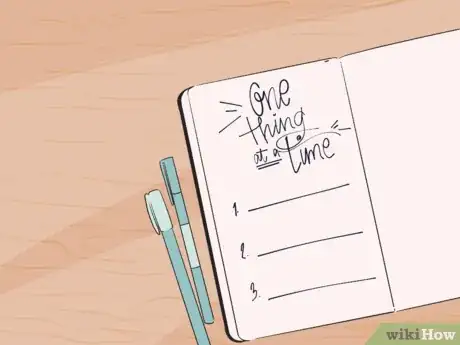




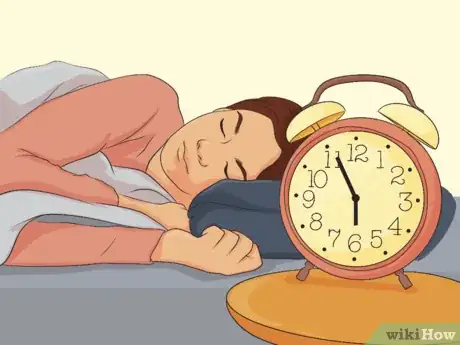
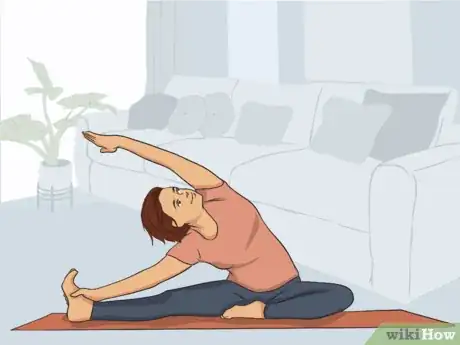


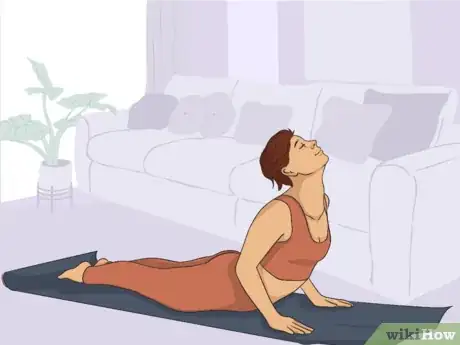

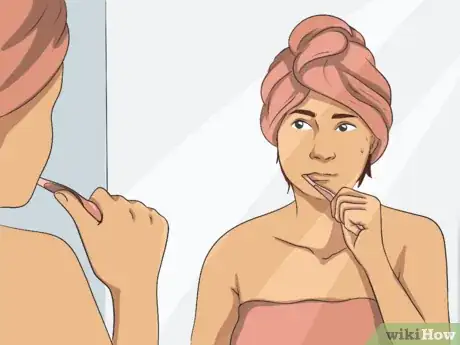
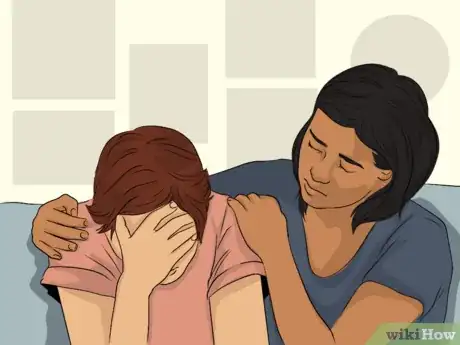

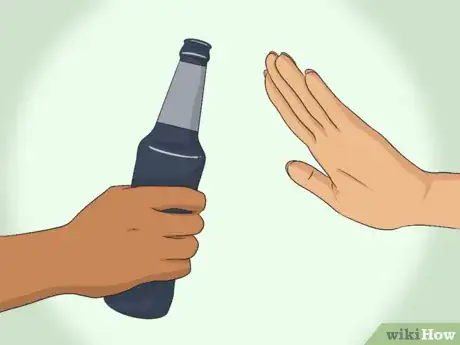
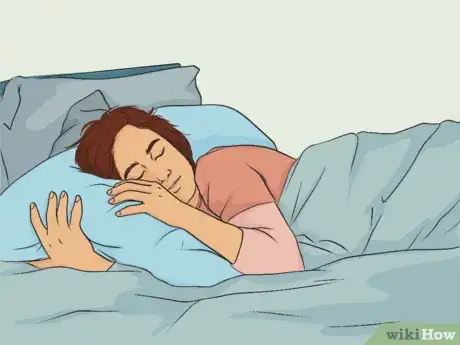

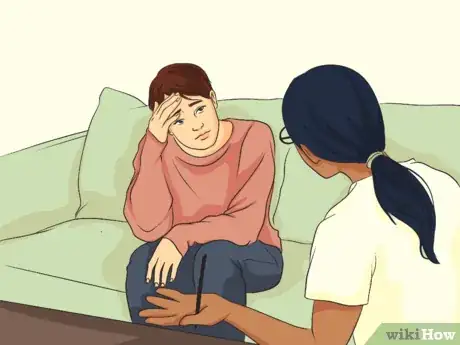

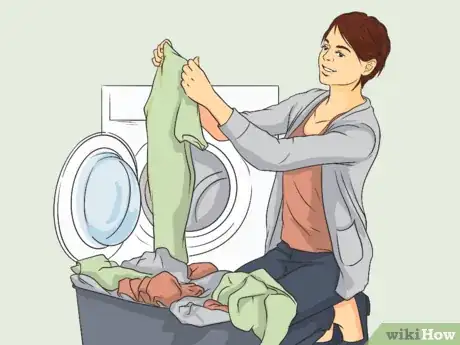
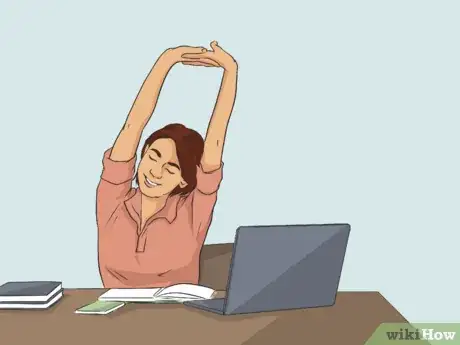

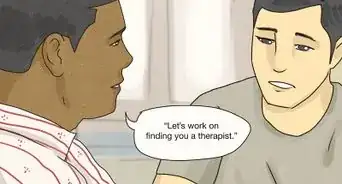

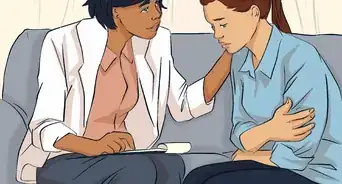






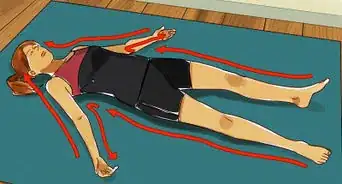


















































Medical Disclaimer
The content of this article is not intended to be a substitute for professional medical advice, examination, diagnosis, or treatment. You should always contact your doctor or other qualified healthcare professional before starting, changing, or stopping any kind of health treatment.
Read More...